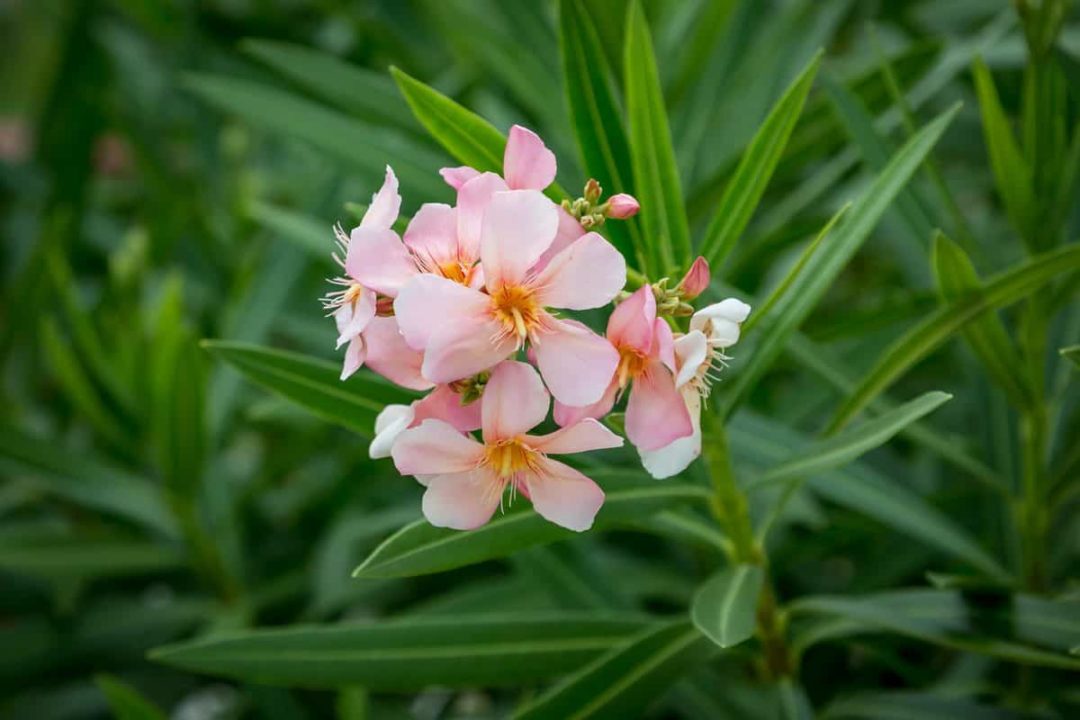The American Botanical Council (ABC) has released a statement explaining that oleander, Nerium oleander, is a white- or pink-flowering bush grown as an ornamental plant in many parts of the United States, north Africa, the Mediterranean, and southwestern Asia. All parts of the oleander plant are highly toxic. Oleandrin is a poisonous substance found in all parts of the plant; technically, it is a cardiac glycoside. It is one of several toxic constituents found in the oleander plant. Oleandrin as a purified pharmaceutical investigative drug product is being researched for potential applications in cancer treatment and as an antiviral agent by Phoenix Biotechnology. ABC notes that this product has not been tested in humans with COVID-19.
Lindell told CNN that President Trump “was enthusiastic” about the treatment, and wants FDA to "do its course."
CNN reported that, on Monday, Trump confirmed that he had heard about oleandrin. He asked the reporter: “Is it something people are talking about very strongly?” He added: “We’ll look at it, we’ll look at it, we’re looking at a lot of different things. I will say the FDA has been great. They are very close. We’re very close to a vaccine. Very close to a therapeutic. I heard that name mentioned, we’ll find out.”
Lindell told CNN that he had brought his findings to Housing and Urban Development Secretary Ben Carson, a member of the White House coronavirus task force: “I brought this to Secretary Carson and he did his due diligence and was just amazed. He said it was very exciting seeing all the data.”
A task force member told CNN that this has never been brought up during a task force meeting, even those attended by Secretary Carson.
Related: AHPA Analyzes COVID-19 Warning Letters CBD May Help Prevent Lung Destruction in COVID-19, Researchers Report Masks, Nasal Sprays: COVID-19 Researcher Discusses Strategies that May Offer Protection
Oleandrin has not been approved by FDA, as a treatment for COVID-19, a drug, or a dietary supplement.The American Herbal Products Association (AHPA) released a statement noting that a new dietary ingredient notification was submitted to FDA for an oleander extract in 1998. AHPA’s statement quotes FDA’s response as: “All parts of the oleander plant are poisonous to man and animals … [due to] the cardiac glycosides in oleander … [including] oleandrin.” Out of the over 1,000 NDI notifications released by FDA to date, AHPA has only identified seven that expressed known safety concerns like this.
Lindell is chairman of the Minnesota Trump campaign, and makes frequent appearances on Trump’s behalf. Last week, he was added to the board of Phoenix Biotechnology, which is testing oleandrin, and received a financial stake in the company.
ABC notes that oleander plant parts and extracts are not sufficiently safe to be sold in dietary supplements. The statement acknowledges that there are some homeopathic drugs made from oleander, but these preparations are diluted to the point where there are only minute amounts of oleander compound molecules left in the final product.
AHPA “strongly discourages” sales or marketing of dietary supplements that contain any part of the oleander plant or oleandrin. AHPA urges physical and online retailers to refrain from offering these products for sale. Oleander—and oleandrin—can have severe effects on the heart, and ingestion of even small amounts of the plant has been associated with death.
ABC Founder and Executive Director Mark Blumenthal said in the statement: “To be clear, ABC applauds appropriate scientific research into medicinal plants and fungi as sources of new medicines. We also acknowledge the very promising medical research conducted by Phoenix Biotechnology and their oleandrin formulations. However, ABC emphasizes the distinction between a scientifically studied, chemically defined experimental new drug compound from a widely known poisonous plant and a simple home-made pill, tea, or extract made from the plant’s various parts. With respect to oleander, all parts of the plant are highly toxic, dangerous, and life-threatening when ingested. Consumers should not, ever, try to make a homemade remedy from or self-treat with oleander.”











